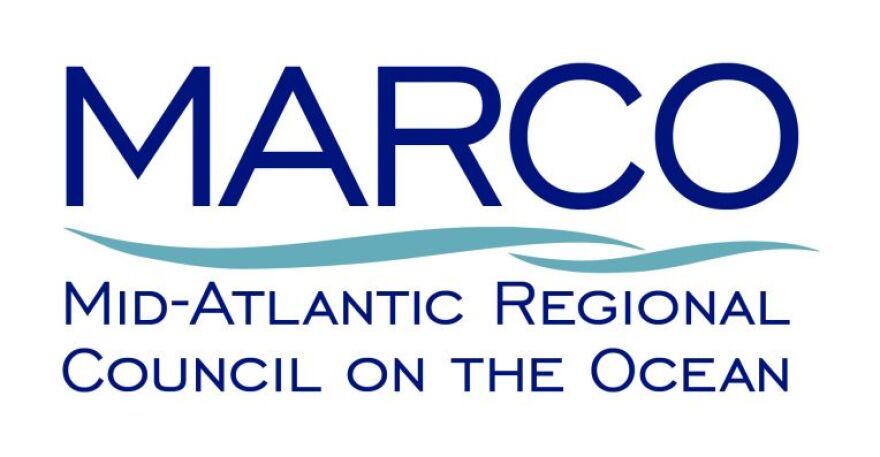Environmentalists, researchers and coastal residents gathered Friday in Dewey Beach for a preview of the regional ocean assessment that will be released Monday by MARCO, the Mid-Atlantic Regional Council for the Ocean.
The assessment is a comprehensive trove of publicly available data on marine life, ocean acidification and human use of the ocean between New York and Virginia. Regional ocean assessments are required by President Obama’s 2010 executive order that created the country’s first National Ocean Policy.
Several in attendance of the forum were interested in using the assessment to back up their opposition to seismic air gun testing for offshore oil and natural gas reserves. Matt Gove is the Mid-Atlantic Policy Manager for the Surfrider Foundation.
“There’s all kinds of biomass, critters and birds out there that are going to be negatively affected by these activities," said Gove. "And so we can point and say, ‘Hey, look. These maps show these animals are living here and they’re going to be affected negatively.’”
Recently, a number of beach towns, including Lewes, Rehoboth Beach and Fenwick Island have passed resolutions to oppose seismic testing in the ocean. This was in response to the U.S. Dept. of Interior’s proposal to conduct oil and gas exploration off the Atlantic coast.
The assessment does contain gaps in data. While the assessment includes marine mammal data, such as the density of humpback whales along the Mid-Atlantic coast, it doesn’t provide stats on invertebrates, like sea scallops, which are economically and ecologically valuable.
University of Delaware professor Jeremy Firestone, whose research focuses on wind energy, says that kind of information is crucial for planning, say, construction of an offshore wind farm.
“You wouldn’t necessarily want to site a wind project in a scallop area because the scallops don’t move," said Firestone. "If you’re talking about mobile fish, then it becomes not so problematic.”
The assessment is used to develop MARCO’s Ocean Action Plan, a set of guidelines for ocean planning efforts. A draft of the plan will be turned in by early summer and officially submitted by September.
Explore ocean maps and data already released by MARCO here.



